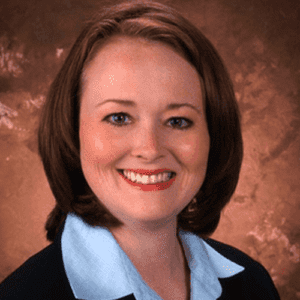
The purpose of this blog is to stimulate thought and discussion about important issues in healthcare. Opinions expressed are those of the author and do not necessarily express the views of CMDA. We encourage you to join the conversation on our website and share your experience, insight and expertise. CMDA has a rigorous and representative process in formulating official positions, which are largely limited to bioethical areas.
Gratitude Journals and Healthcare: How Can They Help?
July 20, 2017
by Autumn Dawn Galbreath, MD, MBA
I am very much a can-do person—attacking the tasks in front of me with an astonishing willpower. We’re all like that, right? We wouldn’t have made it through medical school and residency otherwise! But when push comes to shove, I am not necessarily grateful or optimistic. I can tend toward the negative if left to my own human nature. In contrast, I know some people who just seem to have been born genetically positive and optimistic. They are resilient in the face of difficulty, always expect the best from every person or situation, and seem to have an easier time trusting God in their daily lives than I do. Maybe it’s just the outside appearance, but those positive people seem to enjoy life more than I often do.
Given my natural bent, I am intrigued by the relatively recent study of gratitude. Anecdotal reports are interesting—such as Washington Postsyndicated writer Esther Cepeda’s improvement in her long-standing anxiety through keeping a gratitude journal. Articles like that grab my attention and make me think. But scholarly studies of gratitude are really fascinating. That researchers thought to study gratitude surprises me somewhat (maybe that’s indicative of my own negativity), but their results surprise me even more. Research on gratitude has demonstrated the following:
- “Gratitude expressions increase prosocial behavior by enabling individuals to feel socially valued.” In other words, the thank you notes your mom made you write were more than just a silly social convention.
- A “conscious focus on blessings may have emotional and interpersonal benefits.” In other words, “count your blessings…count them one by one” is more than just a lyric you learned in Vacation Bible School.
- Expressing gratitude to a partner and the resulting “positive perception of partner mediated the relationship between condition and comfort in voicing relationship concerns.” In other words, appreciation really is the oxygen in a relationship.
- “An existing body of research supports an association between gratitude and an overall sense of well being.” In other words, if you’re happy and you know it, you will feel like clapping your hands.
Of course, not every study of gratitude found a positive association with wellbeing or emotional benefits. Several studies showed no benefit at all, including these:
- https://www.ncbi.nlm.nih.gov/pubmed/16389060
- https://search.proquest.com/docview/304893109
- http://www.worldcat.org/title/effects-of-gratitude-on-divorce-adjustment-and-well-being-of-middle-aged-divorced-women/oclc/77059112
- http://www.iosrjournals.org/iosr-jhss/papers/Vol3-issue5/G0353538.pdf?id=5725
These findings occurred across different age groups and with individuals with varying life experiences. As Sansone and Sansone point out, these “findings suggest that there are conditions or circumstances that temper the association between gratitude and well being, which warrant further investigation if gratitude exercises are to be undertaken and be consistently effective in the clinical setting.”
Yes, you read that last quote right—“gratitude exercises…in the clinical setting.” There is sufficient positive research into gratitude as an intervention that some are advocating using “gratitude exercises” therapeutically. The most popular of these exercises seems to be the gratitude journal—a journal in which individuals record anything for which they are grateful in the course of a day. Psychologists prescribe gratitude journals, prayer and meditation as exercises to increase gratitude in the patient’s daily life, and the increase in gratitude is believed to create an enhanced sense of wellbeing and improved emotional health. Doesn’t that list sound oddly Christian? Gratitude, prayer, meditation (on Scripture, in the Christian context). All things we learned in our formative years as new Christians. All disciplines for deepening our faith and our walk with Christ. All biblical truths.
- “Let them give thanks to the LORD for his unfailing love and his wonderful deeds for men, for he satisfies the thirsty and fills the hungry with good things” (Psalm 107:8-9, NIV 1984).
- “Do not be anxious about anything, but in everything, by prayer and petition, with thanksgiving, present your requests to God. And the peace of God, which transcends all understanding, will guard your hearts and your minds in Christ Jesus” (Philippians 4:6-7, NIV 1984).
- “How blessed is the man who does not walk in the counsel of the wicked, Nor stand in the path of sinners, Nor sit in the seat of scoffers! But his delight is in the law of the LORD, And in His law he meditates day and night. He will be like a tree firmly planted by streams of water, Which yields its fruit in its season And its leaf does not wither; And in whatever he does, he prospers” (Psalm 1:1-3, NASB).
Should we be surprised that scientific research is bearing out what God’s Word has already told us? And yet, despite knowing these things, despite biblical commands to do them, I must confess that I forget them more often than I remember. It makes me wonder how much impact we Christians could have on the world if all of us were engaged in gratitude, prayer and scriptural meditation on a daily basis, rather than letting the cares of the world, or our innate negativity, guide our thinking. It seems the writer of Proverbs was really onto something when he said, “A cheerful heart is good medicine, but a crushed spirit dries up the bones” (Proverbs 17:22, NIV 1984). I know I am reminded and convicted. I want to administer good medicine, and cultivating the disciplines of gratitude is one way to do just that!

